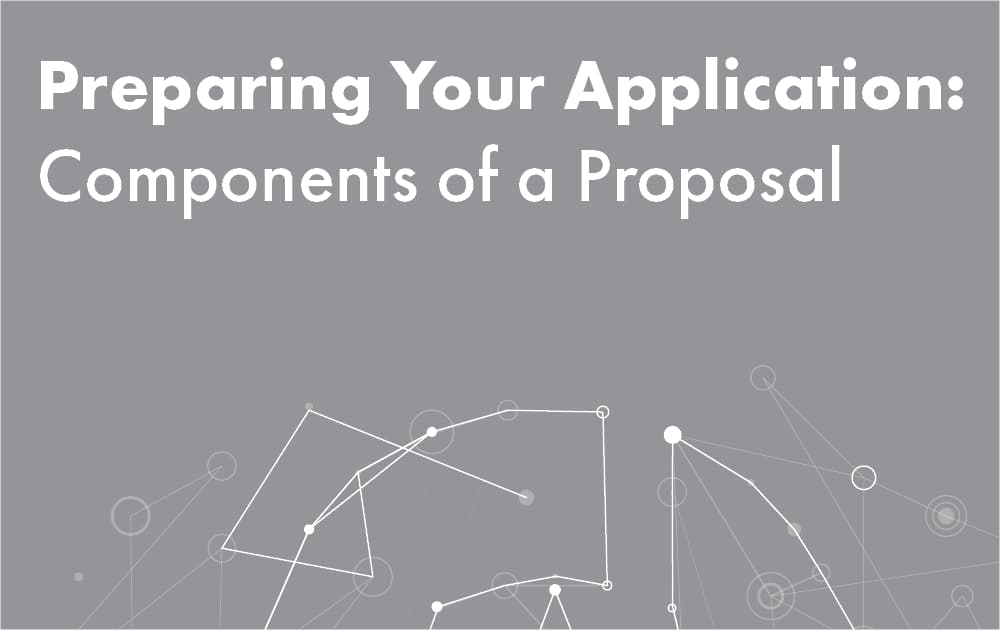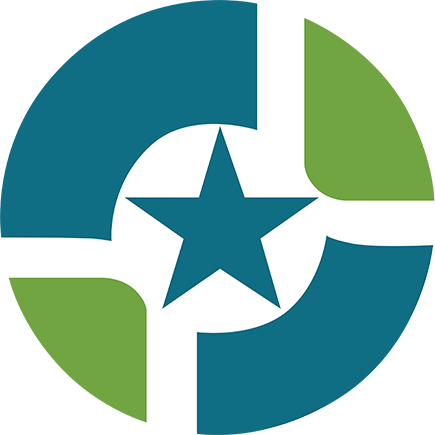4 November 2022
Part 4 — Preparing Your Application: Components of a Proposal
This is part 4 of 8 in the Generate a Winning Research Proposal Learning Series. Click here to download the whole series.
After you’ve identified a funding opportunity that looks like it’ll be a good match for your project, carefully review what documents are required and what information is necessary within each. Some documents may require extra planning and time to allow for communication with a collaborator or to gather documentation. Identifying documents takes priority due to the time needed to procure them. For example, a sponsor can require that the details of an active investigational new drug application are included in the proposal or that the Institutional Review Board (IRB) or the Food and Drug Administration (FDA) provide acknowledgment that the investigational drug/agent/device is exempt for a clinical trial. Setting aside adequate time to assemble the required documentation is critical as the application could be withdrawn by the sponsor if they are not included in the application.
The components required may vary depending on the sponsor, but most proposals will include some version of the following:
- Research plan: What you actually propose to do, why it’s important, how you plan to do it, what you anticipate discovering, and how you plan to address any roadblocks you may encounter.
- Abstract(s): A concise summary of the entire project and its importance. Some funders will require a technical abstract, some will require an abstract in lay language, and some will require both. These are generally made publicly available if your project is funded.
- Budget and budget justification: This section may also require budgets and justifications from collaborators if you plan to subcontract out any of the project.
- Biographical sketches of all key personnel (biosketches): Key personnel include the principal investigator and any collaborators that are essential to the project.
- Support documents for all key personnel: The requirement and format for these vary by sponsor. This information gives the reviewers an overview of your other funded projects and lets them know how much time you have committed to each of them.
- Facilities/equipment: This information documents for the reviewers that you have access to the facilities and equipment that you will need to successfully complete this project.
- Letters of support: The requirements for these vary by sponsor and funding opportunity. Since these can take some time, it will be necessary to start lining them up early in the process
- Human subjects or animal work discussion: If applicable to your project.
- Administrative components: Investigator information, performance site, grantee (Geneva) information.
There may be other sections required depending on the sponsor, the funding opportunity, and the structure of your planned project, including resource or data sharing plans, multi-PI leadership plans, select agent research, and others. Geneva can provide you with templates for each section of your proposal to help you determine how to budget your time and effort.
All of the sections of the proposal are important – your attention to the details tells the reviewers that you are competent and thoughtful and that you respect their time and expertise. Following the instructions about what to include and where to include means the reviewers don’t have to figure out what you’re doing to follow along and gives them a set of information that matches what they expect to see. For example, your biosketches and the biosketches of your collaborators provide the reviewers with a picture of the expertise of you and your team, helping to build reviewer confidence that you can successfully conduct the research. The budget and budget justification tell the reviewers that you have given significant thought to the project and what might be needed to make it work.
While all sections of the proposal are important, the research plan, abstract(s), and human subjects or animal sections are the most critical to the entire proposal. Because these sections inform other sections of the proposal, it is recommended that you focus your efforts on these sections first and as early as possible. Those sections are where you will want to spend the most time and concentration, and they will inform the other sections – your budget, your collaborators, the letters of support that you will need to collect – so you will want to start on those as early as possible before the deadline.
We can assist with proposal preparation at no cost to the researcher. Learn more about our proposal development services or contact us at research@genevaUSA.org.

HIGHLIGHTS
- Carefully review required documents.
- Components required may vary depending on the sponsor, but most will include some version of the bulleted list provided here.
- For additional required sections, Geneva can provide you with templates for each section of your proposal, in addition to other services.
- The research plan, abstract(s) and human subjects or animal sections require more attention to detail.


